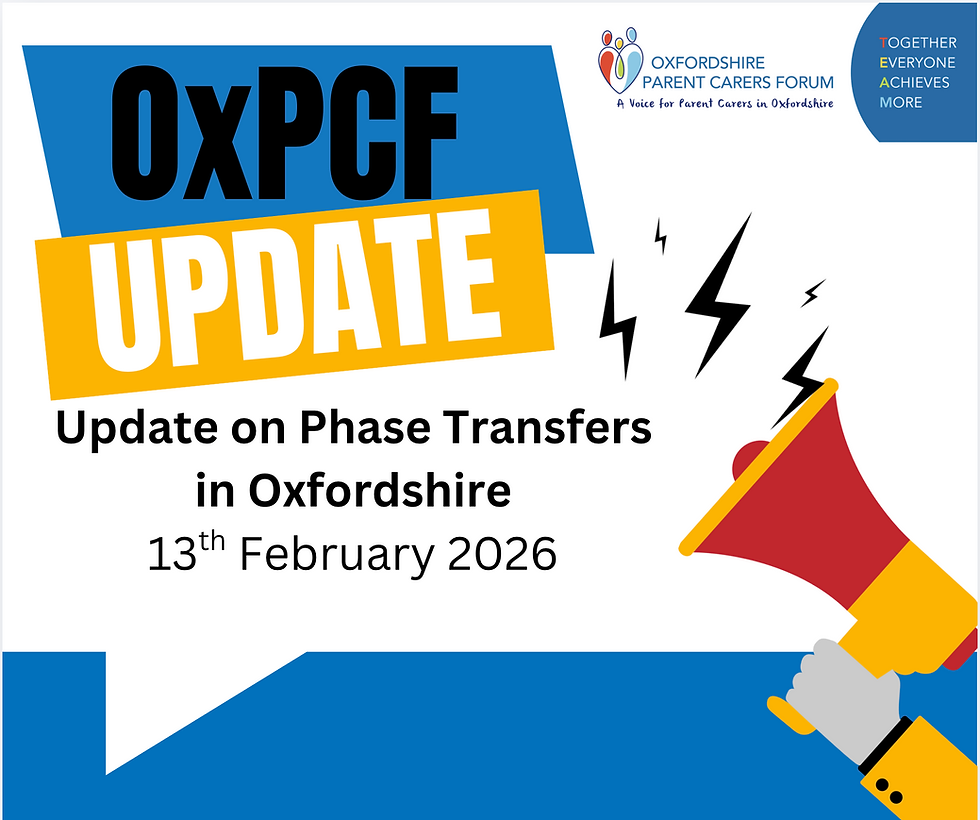Supporting a Young Person Who Self-Harms – A Guide for Parents and Carers
- Oxfordshire Parent Carers Forum

- Mar 31, 2025
- 1 min read
Discovering that your child is self-harming can be one of the most distressing experiences a parent carer may face. The Coping with Self-Harm guide, developed by researchers at the University of Oxford, offers a compassionate and practical resource to help you navigate this incredibly difficult time.
The guide is built on real experiences shared by parents and carers, and it sheds light on why young people may self-harm. It explains that self-harm is often not a suicide attempt but a way to manage overwhelming emotions. It may serve as a form of release, a cry for help, or an attempt to regain control when life feels unmanageable.
Importantly, the guide offers practical advice on:
Recognising signs of self-harm
Understanding possible underlying causes, from mental health struggles to social pressures
Having open, non-judgmental conversations with your child
Offering support without letting self-harm dominate your relationship
Managing injuries and encouraging safe coping strategies
It also reminds parents that looking after their own wellbeing is essential too. Supporting a child through this time can be emotionally exhausting—seeking help, speaking to someone, and setting realistic expectations can make a big difference.
If you are feeling isolated or unsure what to do, you're not alone. Help is available—for you and your child. This guide is a gentle yet powerful reminder that with understanding, support, and the right resources, recovery is possible.
📖 Download the full guide or visit HealthTalk.org to hear from other parents who’ve been through it.Supporting a Young Person Who Self-Harms – A Guide for Parents and Carers



Comments